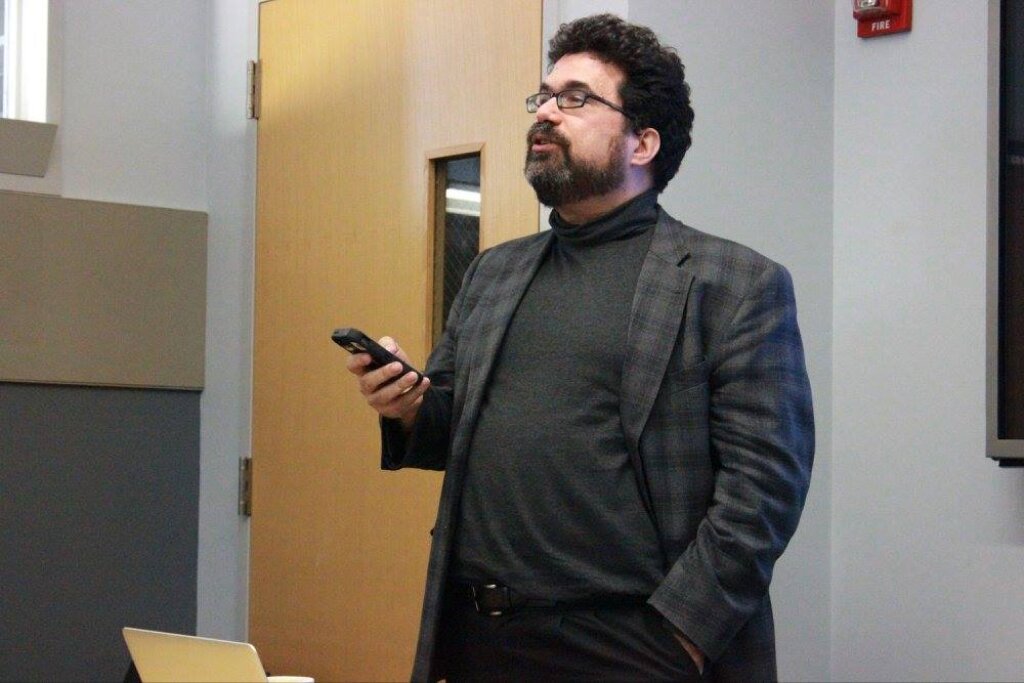Irina Anisimova is a Guest Researcher at the Department of Foreign Languages at the University of Bergen, Norway. Her scholarship combines insights from the humanities and social sciences, falling within three broad categories: 1. Contemporary culture and politics; 2. Empire and postcolonial theory; 3. Russian media and film.
Waste or trash are powerful cultural metaphors often used to represent diverse social phenomena, from undervalued members of society and undesirable living conditions to types of popular culture. At the same time, trash as such is closely connected to our materiality and the social organization of life. In an article published in a 2023 issue of Slavica Bergensia, “The Politics and Aesthetics of Waste in Liudmila Petrushevskaia’s Fiction,” I traced the connections among different aspects of waste metaphors.
My main argument in that piece arose from the observation that the transition from socialist to market-driven culture has led to drastic transformations in attitudes toward waste. If market economies are often interpreted as wasteful societies, Soviet society was characterized by the persistence of deficits and the frequent repurposing and reuse of everyday objects. At the same time, post-Soviet culture witnessed the flourishing of cultural forms that could be considered “trashy” popular culture. Therefore, the metaphor of waste is an interesting representation of post-Soviet transition, and can be found, for example, in the early post-Soviet fiction of Viktor Pelevin, Olga Slavnikova, and Vladimir Sorokin.
My article focuses on the works of Liudmila Petrushevskaia—another post-Soviet writer whose fiction engages with the Soviet and post-Soviet symbolism of waste. My approach to Petrushevskaia’s works, as well as my thoughts on waste in post-Soviet culture, draws on the interdisciplinary field of waste studies, which examines “the multivalent significance of rubbish, filth, toxins and remains across a wide range of contexts” and from a variety of perspectives. As a literal substance, waste is closely connected to our physical and social environments. At the same time, images of waste can serve as broader metaphors for social problems, social anxieties, and, more disturbingly, entire social groups.
Surprisingly, the topic of waste’s meaning has not received much attention in scholarship on Soviet and post-Soviet culture, so my study fills an important gap in such research. I argue that images of waste in late Soviet and post-Soviet culture can function as important symbolic markers of Soviet and post-Soviet society in the process of its sociocultural transition.
Petrushevskaia’s fiction is especially interesting and representative in this respect, since waste in its literal and figurative meanings reappear in her works belonging to different periods and often acquires additional symbolic significance. I examine Petrushevskaia’s works belonging to different periods—the 1980s, 1990s, 2000s, and 2010s—to understand the ways this evolution of waste imagery sheds light on both the changes in her fiction and the sociocultural trends of late Soviet and post-Soviet society. In Petrushevskaia’s earlier fiction, metaphors of waste often expressed a social critique of Soviet life. In later works, waste metaphors begin to relate to post-Soviet popular culture. Petrushevskaia also uses such metaphors to suggest potential for artistic creativity and transformation, while simultaneously freeing them from a clear socio-political stance. Moreover, Petrushevskaia’s changing and multivalent imagery of waste reflects the evolving cultural contexts of the post-Soviet transition—the move from a situation in which the state exercises control over culture to one in which the authors have to consider the influence of a globalized cultural market.
The evolution of waste imagery in Petrushevskaia’s prose sheds light on both the changes in her fiction and the sociocultural trends of late-Soviet and post-Soviet transitions. It demonstrates that metaphors of waste connect the politics of representation to the politics of everyday life, raising a variety of social questions relating to contemporary society. In Petrushevskaia’s earlier fiction, the metaphors of waste often express a social critique of Soviet life. Thus, in The Time: Night and other works from the 1980s and early 1990s, Petrushevskaia shows Soviet society’s propensity for wasting human lives. Additionally, her use of waste metaphors illustrates the changing materiality of late Soviet and post-Soviet society in their shift from late-Soviet scarcity to the consumerism and popular culture of the post-Soviet period. Like other post-Soviet liberal writers belonging to an older generation, Petrushevskaia appears to be much more critical of Soviet society and its legacy than of the post-Soviet period.
In her works of the 2000s and 2010s, meanwhile, metaphors of waste begint o represent aspects of post-Soviet popular culture. The evolution of waste symbolism in Petrushevskaia’s prose reflects the political and aesthetic changes of the transitional period, with its growing interest in popular culture and taboo topics. Unlike many socially engaged artistic works that also use waste-related imagery, Petrushevskaia’s post-Soviet writings seem less interested in serious engagement with the questions of capitalism, consumption, or environmental problems, responding to these challenges in an ironic and parodic manner. The political significance of Petrushevskaia’s post-Soviet prose can instead be seen in its democratizing, anti-elitist, and anti-authoritarian tendencies.
Discussion of waste metaphors in Petrushevskaia’s prose can be developed further by analyzing changing waste metaphors in the fiction of other post-Soviet writers. Additionally, the discussion of “waste” as it pertains to post-Soviet transition can be complicated through its connection to empire and decolonization. Indeed, Soviet infrastructures continue to be a powerful presence in post-Soviet societies, acquiring powerful symbolic meanings that fiction helps unearth.



